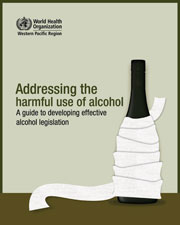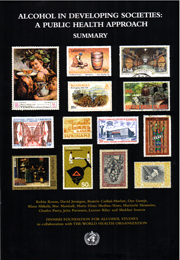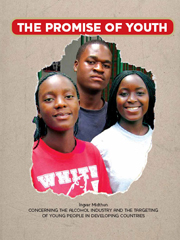
Conflict over liquor sachets in Malawi
Malawi now experiences a conflict over liquor sachets. Government and NGOs versus alcohol producers. Health versus profits. Also other countries in Africa face problems with the small plastic bags with strong liquor.
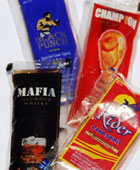
In Malawi there was an encouraging political process last year which aimed at banning the sale of liquor in plastic sachets. Now, as a result of a court decision, the process has stalled. Governments and NGOs have their hands tied up by the court injunction, while the strong liquor continues to be sold to minors, through legal and illegal channels.

The introduction of strong liquor in small plastic bags is an attempt by the alcohol beverage industry, both local and multinational companies and in a number of countries, to find new market segments and to recruit new consumers. The sachets are sold at a very low price, so that many can afford them, including youth and poor people. One bag contains the equivalent of whiskey, vodka etc in a standard drink. The price of such a sachet in Malawi may be as low as 10 Malawian kwacha in the most extreme cases. This is equivalent to 7-8 US cents, which even for a poor Malawian is a low price. Often the sachets are sold through unlicensed outlets and to minors.
As an attempt to convince customers that these sachets are powerful and masculine products they have been given very impressing brand names: Boss, Power’s No 1, Rider, Mafia, Champion and Black Punch!
In Malawi it has also been disclosed that some producers have mixed non-food alcohol meant for export in the liquor sachets. Such alcohol is exempted from some domestic taxes and therefore obtained at a low cost. This helps to keep prices low and profits higher. One Blantyre-based company was closed down by the authorities because of use of ethanol not meant for consumption in their production of liquor sachets.
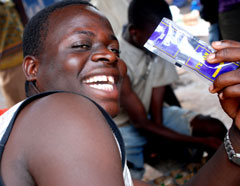
After consultation with the industry and other stakeholders the Malawian Bureau of Standards (MBS) decided in June 2010 to ban the sale of liquor in plastic bags. The decisions provided that all liquor must be sold in glass bottle and that MBS should define a minimum size of such containers. The producers were given a six months grace period to phase out the use of plastic containers and to introduce glass bottles.
The grace period ended 17th January this year. However, the ban could not be enforced by the government. One of the distilling companies, Abwensi Group which produces the Rider brand of spirits, had obtained a court injunction which restrains the MBS to enforce the ban of sachets on its company.
Now the case is in the hands of lawyers, while liquor sachets continue to be sold.
![]()
![]()
Developed with CustomPublish CMS by Nettinfo AS

